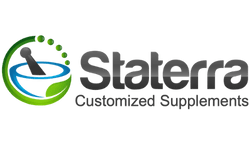To multi or not to multi…
There are a number of ways to naturally support your immune system to keep you strong. Exercise, sleep and diet are all key. In addition, specific nutrients are important to support a strong immune system, especially during times of stress. So, what specific nutrients should you watch for when trying to support a healthy immune system?
Here are some key immune boosting nutrients to look for in your diet:
–Vitamin B complex: B vitamins work to keep your body functioning and producing energy properly. Vitamin B6, in particular, has been shown to support a strong immune system by helping produce properly functioning white blood cells. B-vitamins (including B6) are found in red meat, eggs, fish, spinach and carrots.
–Vitamin C: Vitamin C, or the “classic” immune boosting supplement, has been shown to decrease the duration of the common cold as well as prevent infection. Vitamin C works to support the production of immune cells and to help protect immune cells from the toxic compounds created when fighting off infection. Vitamin C is also critical to collagen and bone formation along with wound healing. Vitamin C is found in oranges, broccoli, cauliflower, cantaloupe, kale and pepper.
–Vitamin D3: Low levels of the “sunshine vitamin” are associated with frequent colds and flus. Vitamin D appears to work to regulate the immune system, ensuring an appropriate response. Exposure to the sun can stimulate production of vitamin D but you can also obtain it through your diet in fatty fish, egg yolk, and fortified dairy products.
–Vitamin E: A powerful antioxidant, vitamin E deficiency is rare in humans. However, vitamin E supplementation has been shown to improve overall immune function. In the elderly, vitamin E can also enhance protective immunity and reduce respiratory tract infections. Vitamin E is primarily found in oil, nuts, seeds, bell peppers and spinach
–Zinc: Zinc is a mineral critical to proper immune function. It has an antioxidant effect, and plays a central role in the support and growth of immune cells. Studies suggest that supplemental zinc could reduce the duration of colds, increase natural killer cell cytotoxicity and reduce incidence of infections. Zinc is found in its highest levels in red meat, shellfish, and legumes like chickpeas, lentils and beans.
–Selenium: Selenium is a trace mineral and an antioxidant critical to immune system function. Taking adequate amounts of selenium is essential for your body to mount a proper immune response and it is important to support antibody production and antioxidant responses. Supplementation can also enhance immune response to viruses if you have a selenium deficiency, so it key to have adequate amounts of selenium in your diet. It is found in organ meats, Brazil nuts, fish and seafood.
Does it seem tricky to get all those foods in your diet?
Supporting your immune system is a preventative measure and can reduce the severity and duration of some illnesses. You can support your immune system with the right nutrition and lifestyle, but sometimes you need a little extra help. During times of increased stress or when you aren’t able to get the broad range of food above, adding a multi-nutrient can be a great way to fill in any nutrient gaps and ensure your immune system is fit to fight.
Looking for a multi-nutrient supplement?
Staterra Multi-Nutrient contains B-vitamins, vitamins C, D and E as well as zinc and selenium.
Our Multi-Nutrient is available as a single product or as part of our Immune Support Bundle.

